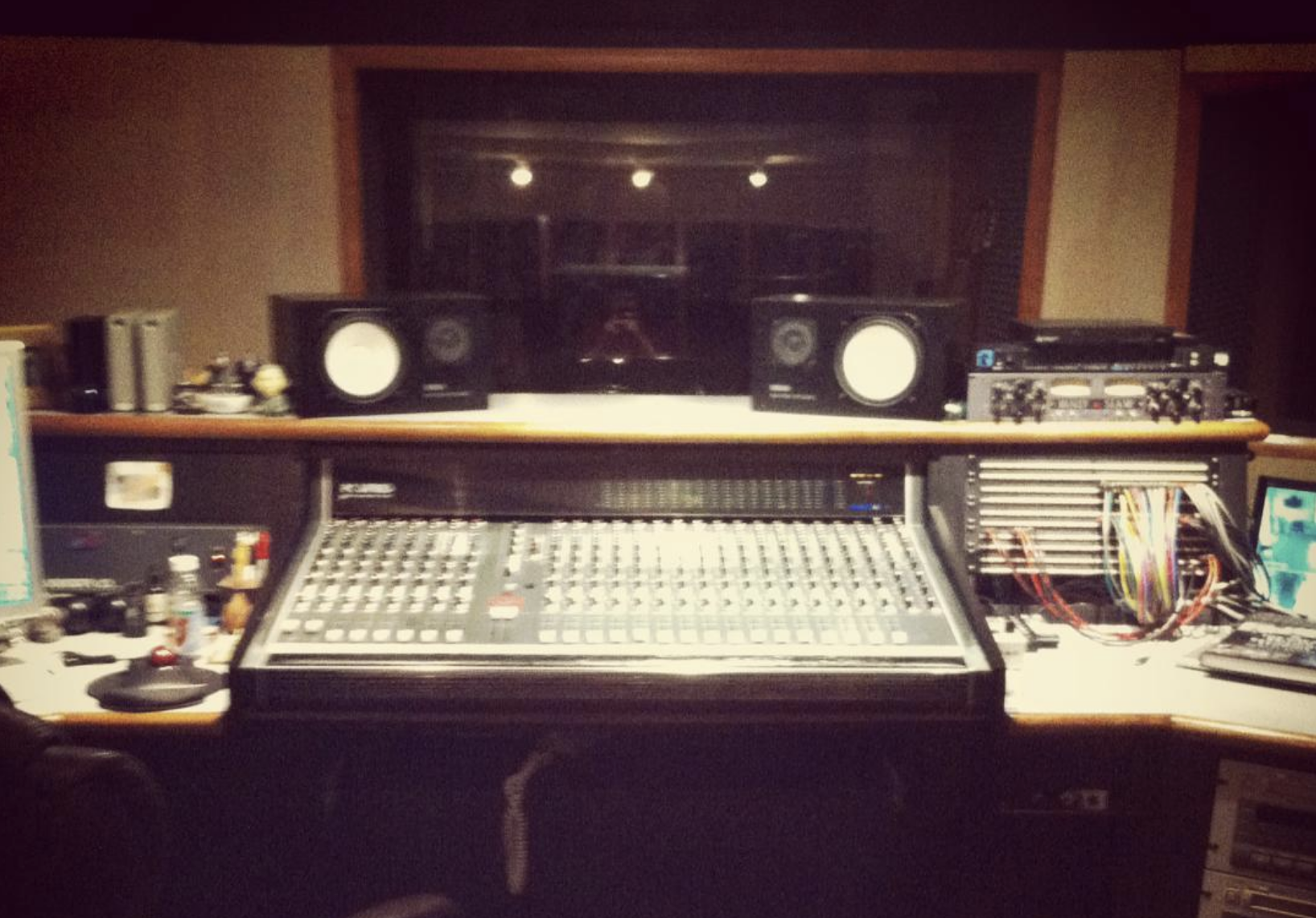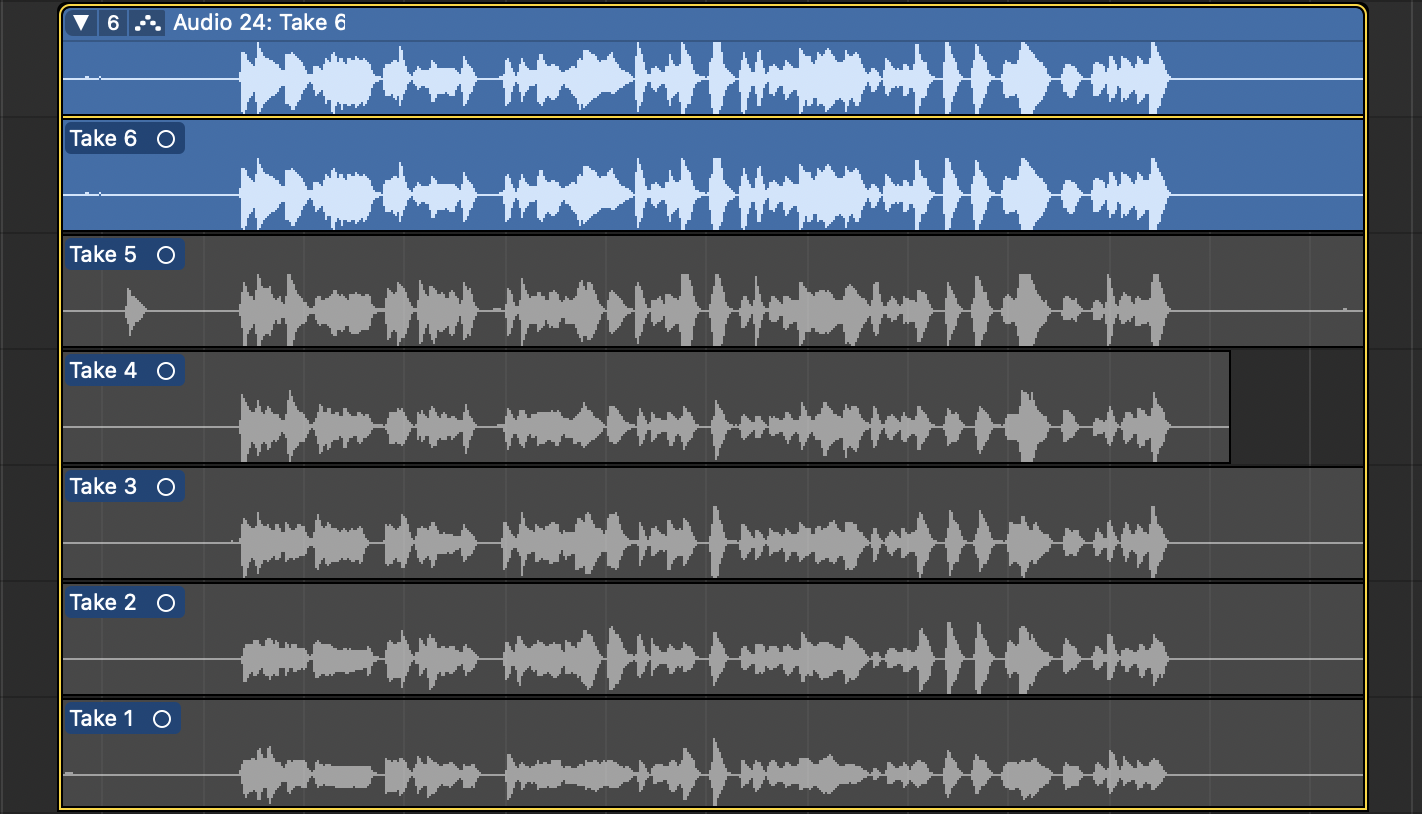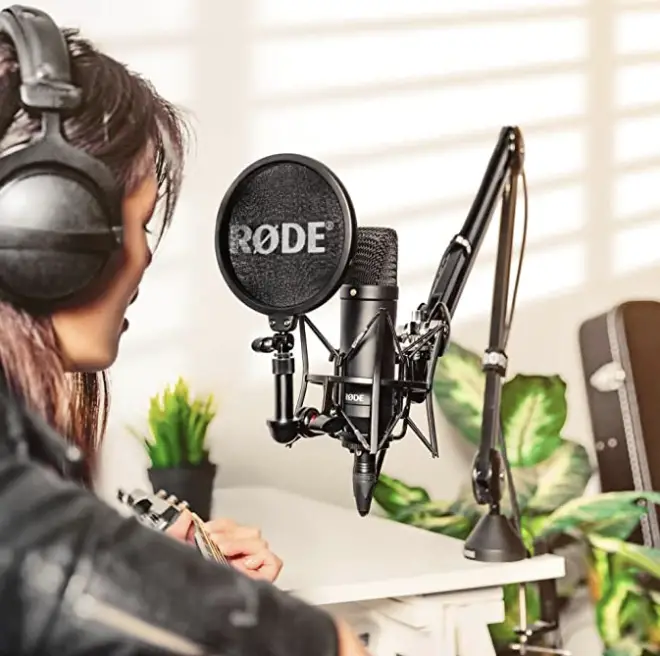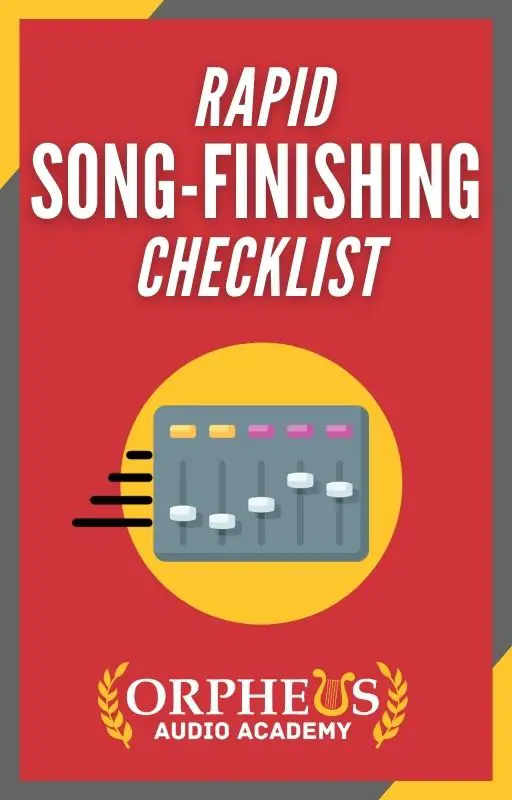When recording vocals at home or at a professional studio, does it make sense to try and record your vocals all in one take?
When we hear professionally produced music on the radio or Spotify, it can often sound like it was all recorded in one take, but the reality is this almost never happens.
All of the most professional vocals you hear are often the result of many, perhaps even dozens, of different takes all spliced together digitally.
So should you record your vocals all in one take?
When recording vocals, you should record at least 3 takes of your lead sections, and ideally, 5 to 6 takes. With more takes, you have flexibility and can splice together the best section of each take for the best possible performance. You will also have takes for double tracking.
Finish Songs Faster
Sign up to get my free rapid song-finishing checklist to help you finish more radio-worthy songs, faster.
When I helped to record bands and artists at commercial recording studio, I would hear a familiar question asked by the vocalist...
"How was that?"
If I thought we had enough good takes, I would ask the artist if they felt good about it. We would often record another take.
Not only that, but we would also have the vocalist "practice" what they were going to sing one time first, but record the take without telling them.
This is because often the first couple takes an artist does are actually the best.
But long story short, we never would record just one take
Do Singers Record Songs In One Take?

The studio where I cut my teeth learning audio engineering and music production.
Singers rarely record songs in one take.
Even those artists whom we would record who did sing a song all the way through, they would always do multiple takes, and often we would go back over certain sections and have them "punch in" a lyric phrase or two.
The term "punch in" refers to a recording tactic that allows a producer to replace a portion of a track without destroying or recording over the entire take.
Most of the time, we would have vocalists record songs in sections, and this is what I like to do when I record vocals for my own music.
I'll loop a section, providing myself with ample lead in and out, and then record several takes for that section, usually 5 to 6, before moving on to a different section.
How Many Vocal Takes Should You Record?

Here you can see I recorded 6 takes for the chorus of my song, "Stuck On Sedna".
Record at least 3 takes of your lead vocals, and ideally, 5 to 6.
These extra takes can be life-saving when you dive into editing and mixing. Often times, you might think a take is perfect, only to find it has flaws when you go to mix.
It's ALWAYS better to work with a perfect performance than to try and edit it after the fact.
So record MORE takes than you think you need the first time so you don't have to waste time by rerecording later.
By the way, be sure to use a good quality studio microphone when recording.

Use Vocal Comping To Combine The Best Of Several Takes
Vocal comping is the process of combining multiple vocal takes into one "supertake" that has the best parts of each individual take.
This is called the "composite track" or "comp" or short.
Comping is the standard process for creating professional vocals, so you certainly shouldn't expect to just record one take and use that, even if you record it several times.
Find the best phrases in each of your takes and edit those together.
Record Multiple Takes For Double Tracking
It's also a great idea to have multiple takes recorded of the same section sang in the same exact way for double tracking.
With double tracking (or doubling) you can create much wider, bigger, and stronger vocal performances.
You especially might want to use this technique during your choruses to help them stand out and rise above the energy of your verses.
When you have multiple takes you like, you can simply pan one hard left, the other hard right, and have a third going down the center to create a much bigger vocal performance.
Takes Do Not Have To Be Complete
You also don't have to record a complete take every time you go to record a take.
Instead, you can simply "punch in".
Like I mentioned above, if you are just wanting to re-record one section of a take, then just record that section and don't both re-recording that entire take.
Record More Takes Than You Need
It's also a good idea to simply record more vocal takes than you think you need.
This is because when you go to mix, you might think all your takes are good, but you could find out there is a serious probably that can't easily or ideally be fixed through mixing.
You don't want to have to go back to the vocalist and ask them to record again. Or, even if this is yourself, it wastes valuable time.
So do yourself a favor and just record more vocal takes than you think you need.
How do You Record Vocals Effectively?
Speaking of recording vocals, just how do you go about recording high-quality vocals from home, even if you have a cheap microphone?
That's what I walk you through in my video above, so be sure to watch that to learn how you can record professional vocals from home, step-by-step.
Of course, recording professional vocals is just one part of producing radio-ready music from home.
If you want a proven step-by-step system that you can follow to finish more professional music, faster...
Then grab my free rapid song-finishing mixing checklist below.

Create Better Songs, Faster
Click below to download my free song-finishing checklist to help you create radio-ready songs without taking months to complete them.
I hope you got value from this post on should you record vocals in one take.
If so, feel free to share, otherwise, let me know in the comments below...
